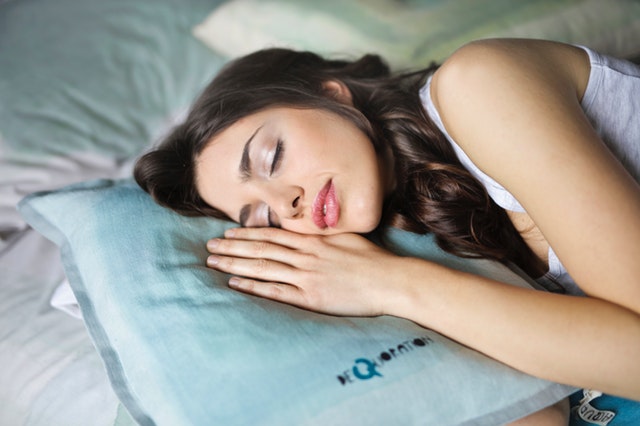We all know how important sleep is, but due to our busy and hectic lives, quite often, we end up sacrificing sleep in order to squeeze all our daily commitments into the short amount of time we have.
Poor sleep leads to problems such as a decline in exercise performance and hormonal functions, as well as causing weight gain and an increased risk of diseases. If you want to improve and optimise your overall health quality, here are some tips to get better quality sleep.

Photo by bruce mars from Pexels
1) Expose yourself to bright lights during the day
You will find an improvement in the quality of your sleep with regular exposure to sunlight or artificial bright lights, especially if you have been having insomniac issues.
2) Cut down on evening blue light exposure
If you expose yourself to blue lights in the evenings, your body will think that it’s daytime. So you should try and cut down, or if possible, eliminate exposure to blue light. Blue light comes from electronic devices like smartphones and computers as well as the television.
3) No caffeine late in the day
Caffeine has benefits such as enhanced focus, and an improvement in energy levels and sports performance. But if caffeine is consumed in the later part of the day, that is, after 4pm, it will stimulate the body’s nervous system and may stop the body from relaxing in the evenings.
This is because taking caffeine up to six hours before sleeping significantly worsens your sleep quality because caffeine can stay in the body system for six to eight hours.
4) Reduce irregular naps
While having short power naps lasting about half an hour or less are great to recharge the body and enhance brain function, and taking long naps or irregular naps during the daytime can disrupt the body clock and you will struggle to sleep at night.
5) Sleep and get up at the same time every day
Being consistent with your sleeping hours and making sure that you go to bed and get up at the same time every day will help you to have better quality sleep in the long run, on both weekdays and weekends. Trying to catch up on sleep during the weekends usually doesn’t help to erase any sleep debt that you may have accumulated during the weekdays.
6) No Alcohol before bed
Drinking alcohol before you sleep negatively affects and disrupts your sleep patterns and hormones, and increases the chances of sleep apnea. Sleep apnea is a condition whereby you find yourself feeling tired and snoring loudly, even after a full night’s sleep.
7) No late night suppers

Photo by Adrienn from Pexels
Eating late at night may affect your sleep quality too because this leads to poor sleep and hormone disruption. However if you are really hungry before bedtime and you need to put something into your stomach before you go to sleep, there may be certain light meals or snacks that could help you to fall into a more restful sleep.
Conclusion
Sleep is important. While everybody functions differently and some people need more sleep than others, I hope that these few tips will help you to improve the quality of your sleep and feel more rested and energised during the daytime.

Leave a Comment